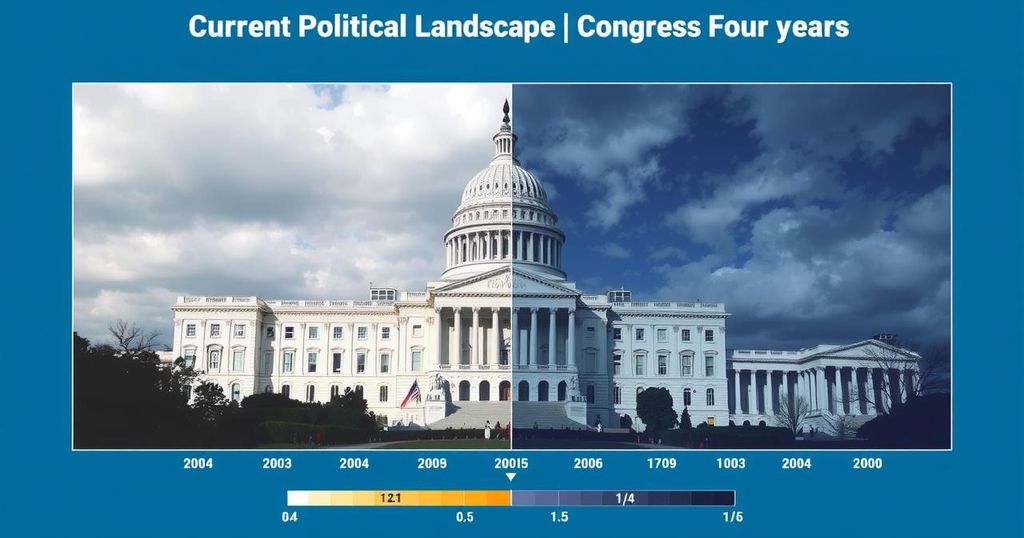Four years post-January 6 insurrection, 157 members of the new Congress remain as election deniers. Trump’s political influence continues, and despite global examples of accountability, efforts in the U.S. appear ineffective. A significant portion of the Republican party promotes false claims regarding the 2020 election, leading to a troubling normalization of this behavior in American politics.
Four years following the January 6 insurrection, a notable 157 members of Congress persist as election deniers, highlighting the diminished political consequences associated with the label. Despite the storming of the Capitol, Donald Trump’s influence remains strong as he is on the verge of returning to the presidency, supported by loyalists in Congress who sought to contest the 2020 election results.
According to data from ElectionDeniers.org, among the current Congress, 137 House members and 20 Senators not only maintained but actively promoted falsehoods about the 2020 election, indicating that over 38% of the Senate Republican caucus and more than 62% of the House GOP caucus doubt the election’s validity. The list of prominent election deniers includes Senators Ted Cruz and Rick Scott, alongside key figures in Republican House leadership such as Mike Johnson and Kevin Hern.
The ramifications of this situation are starkly contrasted by recent events in other nations like South Korea and Brazil. In South Korea, decisive actions taken against the sitting president for overstepping his authority culminated in a successful impeachment process. Similarly, following unrest in Brazil, significant legal actions were initiated against former leaders involved in an insurrection attempt, reinforcing a commitment to democratic accountability.
Conversely, attempts in the United States to hold accountable those implicated in the January 6 events have been lackluster. Congressional initiatives, such as Representative Cori Bush’s proposal to investigate members who sought to overturn the election, have faced stagnation amid a broader political reluctance. Attorney General Merrick Garland’s cautious approach has attracted criticism, as he focused initially on individual rioters rather than examining the leadership that instigated the events.
Over four years, while over 900 individuals have faced convictions related to the riot, the political atmosphere appears to shield significant figures, including Trump, from accountability. The failure to swiftly and decisively act against those who undermined democratic processes has contributed to a normalization of election denial, as exemplified by the continued presence of 157 election deniers within Congress today.
This article provides a thorough analysis of the persistence of election denial among elected officials in the United States following the insurrection at the Capitol on January 6, 2021. It examines the number of Congress members who continue to promote false claims about the 2020 election, indicating a troubling trend regarding accountability for political leaders. The piece juxtaposes the U.S. scenario with decisive responses in South Korea and Brazil, emphasizing differences in political culture and institutional accountability.
In conclusion, the endurance of 157 election deniers in Congress serves as a stark reminder of the diminished repercussions for political malfeasance in the United States. The contrast with international counterparts that have taken substantive actions to combat similar threats to democracy underscores the need for a more assertive approach within American politics. The normalization of election denial not only permeates current political discourse but threatens the foundational principles of democratic governance.
Original Source: zeteo.com






